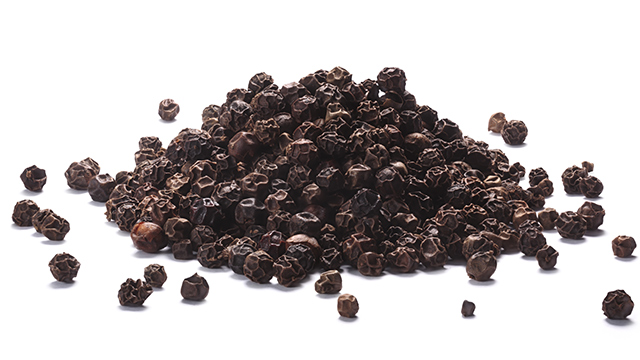Exotic cubeb pepper shown to help respiratory problems, other health issues
03/22/2020 / By Cassie B.

Respiratory problems are a huge concern right now as coronavirus plagues the world, so it is a good time to get acquainted with the cubeb pepper plant. Used for thousands of years in Ayurvedic medicine to address respiratory infections, its list of health benefits is lengthy and impressive.
You might not have heard of cubeb pepper before, but you’ve certainly heard of another member of its family, black pepper. It grows in warm climates such as Indonesia, Malaysia, India and Sri Lanka.
Piper cubeba is also known as Java pepper, tailed pepper, and West African black pepper. It’s a climbing plant that can reach ten meters tall, and its white flowers eventually turn into soft berries with a wrinkled surface – and this is where the healing benefits can be found.
It is believed to have been first introduced to monastic medicine in Europe by Arab doctors. It’s valued in Ayurveda not only as a medicine but also as a spice and cosmetic, and it features in many traditional Indian dishes.
What makes this particular pepper such a health powerhouse is its active ingredient, a compound called hinokinin. Hinokinin is a lignan, or secondary metabolite, that the plant produces, and it is considered a very potent phytonutrient.
Hinokinin is capable of reducing inflammation and pain and is being investigated for its antimycobacterial effects, which could make it suitable as a natural way to treat the lung disease tuberculosis.
Could cubeb pepper help to protect your health?
In addition, scientists have found it may be effective in treating Chagas disease, which affects 8 million people in Latin America. It’s a difficult disease to treat because the only two medications available for it can cause very serious side effects. Hinokinin has also shown significant antiviral activity against viruses like HIV, hepatitis B, and SARS coronavirus, so it may even end up proving helpful in boosting respiratory defenses in the world right now.
In fact, cubeb pepper has long been used for respiratory symptoms because of its ability to dissolve mucus. In addition to treating a nagging cough and mild bronchitis, it can help a host of other respiratory problems.
Its anti-inflammatory properties also make it suitable for infections of the urinary tract, bladder problems, and prostate inflammation, while its analgesic effects make it an option to address problems like migraines, headaches, and dizziness.
It has also been used to help alleviate stress and anxiety, and some people report that it enhances mental performance and attention.
Gastrointestinal issues can also benefit from the compounds in cubeb peppers, which are sometimes used to help stimulate gastric juice production to help aid digestion and deal with gastritis.
Cubeb pepper can be taken in a variety of ways, although tablets made from the powdered fruit are the most common method of ingestion. A small amount of the berries can also be chewed; it is not quite as spicy as black pepper and has a slightly bitter taste with hints of citrus. It can also be used to cook dishes featuring rice, meat, vegetables or seafood.
Like many herbal remedies, however, it’s important that you don’t take excessive amounts. If you’re interested in using it to address a specific concern, an integrative practitioner or naturopath can advise on the best course of action and a safe yet effective amount to take.
Every day, we learn new things about the plants growing on our planet, and given the positive effects that cubeb pepper has shown in dealing with respiratory problems, it wouldn’t be surprising if the answer to our current global health challenges are found growing in a plant somewhere right now.
Sources for this article include:
Submit a correction >>
Tagged Under:
cubeb pepper, Herbs, immune system, Java pepper, lung function, natural health, natural remedies, remedies, respiratory problems
This article may contain statements that reflect the opinion of the author
RECENT NEWS & ARTICLES
COPYRIGHT © 2017 NATURAL CURES NEWS





















